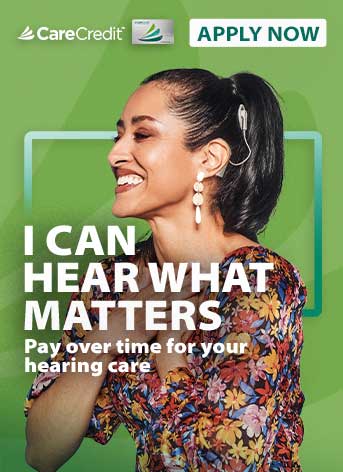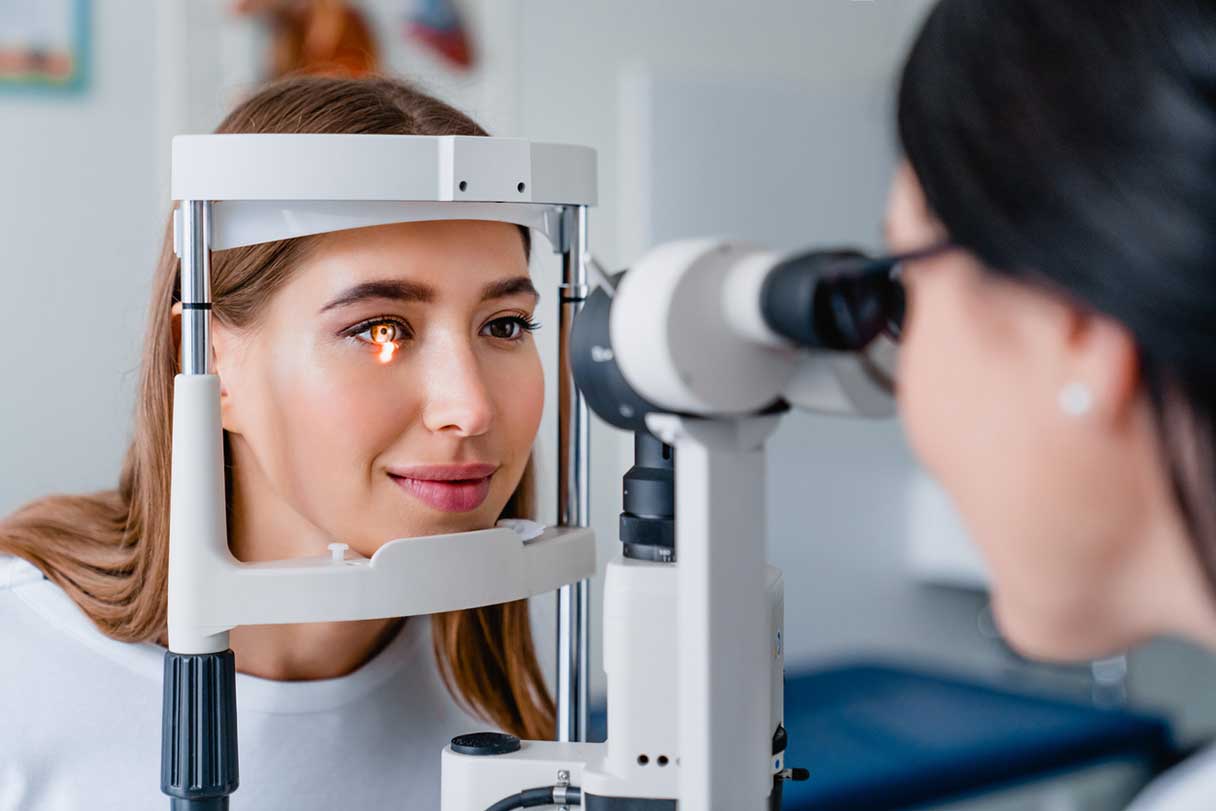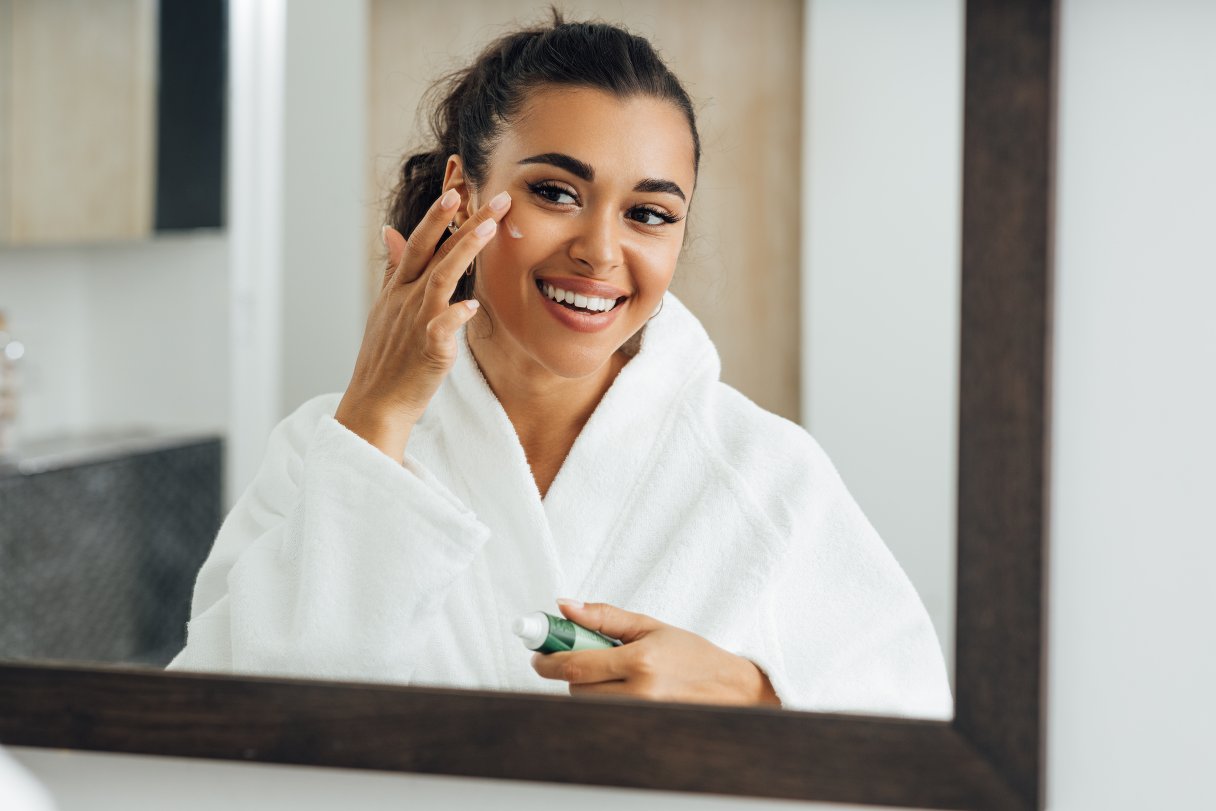“Can you say that again?" If you've found yourself struggling to follow conversations with coworkers, turning your “good" ear to others when they talk or adjusting the volume higher and higher on the television, then you may be suffering from hearing issues.
According to the National Institutes of Health, about 15% of American adults age 18 and older report some difficulties with hearing — and the number jumps up to 50% for those 75 and older.1 Hearing screenings and hearing tests can be an important way for doctors to diagnose the cause of hearing difficulties and suggest recommended treatments.
What Causes Hearing Loss?
Hearing loss can strike at any time, at any age, and can happen for a variety of reasons, including:
- Aging
- Noise exposure
- Genetics
- Impacted ear wax
- Medical conditions
Aging
Aging is the most common factor for hearing loss, with 25% of adults aged 65 to 74 and 50% of adults 75 years old and up suffering from severe hearing loss.1
Noise exposure
Noise exposure from loud music, sporting events, power tools and fireworks can also play a significant role in hearing loss. According to the Centers for Disease Control and Prevention, prolonged noise above 70 decibels (a washing machine) or a single loud noise above 120 decibels (an ambulance siren) can cause noise-induced hearing damage.2
And it's not happening just at concerts and football games. According to the Hearing Loss Association of America, 22 million Americans are exposed to dangerous noise levels in their places of work.3 Hearing loss is prevalent in nearly 18% of individuals (ages 20 to 69) who report having five or more years of loud noise exposure at work.1 Hearing issues are also the most common work-related disability among American veterans with half of all blast-induced injuries resulting in permanent hearing loss.3
Genetics
Genetics, sex and race also have an impact on who experiences hearing loss.
According to the New England Journal of Medicine, genes play a role in 50% to 60% of children with hearing loss.4
Being male also makes you almost two times as likely to experience hearing loss, and non-Hispanic white adults are more prone than any other racial/ethnic group to have issues with hearing.1
Impacted ear wax
Hearing loss can also be due to impacted ear wax buildup in the ear canal causing tinnitus or difficulty hearing.5
Medical conditions
Certain medical conditions and medicines can also lead to hearing loss, such as otosclerosis (a middle ear disease), Ménière's disease (an inner ear condition), autoimmune inner ear disease or ototoxic medications, such as certain antibiotics, large amounts of aspirin and some chemotherapy drugs.6
Chronic medical conditions such as diabetes and high blood pressure can increase your risk for noise-related hearing loss.7
Whatever the cause, hearing loss can build slowly, over time or come on suddenly — and seriously impact your quality of life. If you're concerned about your (or a loved one's) hearing — or simply wondering if it's time for a hearing test — follow the recommended guidelines below to learn when and how often you should have your hearing tested by a hearing professional.
When to Have Your Hearing Checked
Determining if you should get your hearing tested may be based on several different factors. Certain hearing screenings and tests are based on age and may be a part of routine wellness visits and checkups.8 Various lifestyles and occupations may make more regular hearing checks a suggested element of an annual wellness exam. The onset of certain hearing loss symptoms that may interfere with hearing may also warrant an immediate consultation with a hearing specialist.
Be sure to check with your healthcare professional or an audiologist who may recommend a different testing approach — or frequency — depending on your specific circumstances, such as symptoms or family history of hearing loss.
Hearing screenings by age
Although many hearing screenings are built into checkups and schools for those under 18, once an adult, you may have to be more deliberate about ensuring that you are getting your hearing checked. Screenings by age groups include:
- Newborn hearing screening. All 50 states currently require hearing tests for all babies born in hospitals.8 According to the Centers for Disease Control and Prevention, over 98% of all newborns in the U.S. are screened for hearing loss.4
- Hearing screening test for children (18 and under). Hearing tests are often a part of each wellness checkup or if hearing loss symptoms are present. Forty-two states also require or suggest hearing tests be performed in schools.9
- Hearing tests for adults between 19 and 50. Although there are no set guidelines for adult hearing screenings, it is recommended to get your hearing screened at least once in your 20s as a baseline and then every 10 years until the age of 50 — unless you experience symptoms of hearing loss earlier.10
- Hearing tests for adults over 50. Once you turn 50, most doctors recommend getting your hearing tested every two to three years or as you notice any hearing decline.10
Hearing screenings by lifestyle
Regardless of age, annual hearing screenings may be beneficial if your lifestyle, genetics or occupation put you at a higher risk for hearing loss.7 Check with your health care provider to see how often they recommend hearing screenings if you:7
- Are exposed to loud noise through your hobbies or job/occupation, including musicians, airline workers, ambulance drivers or construction workers
- Have a family history of hearing loss
- Are taking medications for other health issues that may impact your hearing
Hearing screenings by symptoms
Consider having your hearing screened more frequently if you experience:
- Recurring ear infections10
- Any hearing loss symptoms or a change in hearing, including tinnitus, ringing in your ears or difficulty understanding what others are saying
Hearing Screenings vs. Hearing Tests: What's the Difference?
Although they sound similar, hearing screening and hearing tests are different.
Hearing screenings
Hearing screenings are quick exams that usually play tones of different pitches and volumes in each ear separately to test your hearing. You raise your hand or press a button if you hear the noise. Other screening may include spoken words that you need to repeat back. You can pass or fail a hearing screening. If you fail, you'll be advised to take a hearing test.11
What is an online hearing screening?
More recently, online hearing screenings have gained popularity as a way to avoid long wait times for appointments with an audiologist and to help elderly patients get their hearing tests without leaving the house. Plus, most of them are free!
If you have an internet-connected device, you can access a free online hearing screening from the comfort and convenience of your home. An online hearing screening can measure how well you hear different sounds and usually takes only a few minutes. A 2019 study published in the Journal of the American Academy of Audiology compared an online automated pure-tone air-conduction test to a traditional in-person manually-adjusted pure-tone test and found that the online hearing test provided an accurate and cost-effective option for establishing hearing loss.12
However, while an online hearing screening may be able to identify a hearing loss issue, it's not a substitute for a thorough exam with a hearing professional, like an audiologist, who can recommend the right hearing solutions for your specific hearing healthcare needs.
Hearing tests
A hearing test is a comprehensive examination of your hearing that can measure the type and severity of your hearing loss and may be able to provide insight as to the cause, as well.11
What is a traditional hearing test?
During a traditional hearing test, patients will visit an audiologist's office and be given a variety of tests to measure hearing and ear health. These tests may include:13
- Acoustic reflex measures
- Pure-tone test
- Tuning fork test
- Speech and word recognition tests
- Tympanometry test
Depending on the provider and location, a traditional hearing test can cost between $150 and $250. Insurance may cover the cost of a traditional hearing test, depending on your policy.14
Benefits of Hearing Screenings
Whether you opt for an online hearing screening or a traditional hearing test, there are many reasons to ensure you are tracking your hearing health. Routine hearing screenings can do more than detect early signs of hearing loss.10 They're also an opportunity to learn about additional hearing solutions, including how to take better care of your hearing to improve your quality of life. Plus, early detection of hearing loss can be key for treating or preventing additional hearing concerns.10
According to the American Speech-Language-Hearing Association (ASHA), studies have shown that untreated hearing loss in adults may contribute to:15
- Higher rates of unemployment (or lower levels of employment)
- Social isolation or loneliness
- Cognitive decline and an increased risk for cognitive difficulties and/or dementia
- Greater risk for falls
Despite these risks, ASHA found that the average adult waits nearly nine years before taking steps to address hearing concerns!15
How to Schedule a Hearing Screening
Ready to check your hearing health? Reach out to your primary care doctor who may be able to offer an in-office hearing screening at your next visit. If they don't offer one in-office, they may be able to provide a referral to an audiologist who specializes in hearing health.
If you don't have a primary care doctor, you can search for audiologists or hearing centers near you that may offer an initial complimentary hearing screening to help you decide if a full hearing test may be beneficial for you.
You can also try a free online hearing screening that can gauge your initial hearing status and help keep track of your progress over time.
Test Your Hearing Online
CareCredit Financing for Hearing Screenings
The CareCredit credit card can help you pay for hearing care, including regular hearing tests, screenings and more.* Apply today and use our Acceptance Locator to find a hearing specialist near you that accepts CareCredit. Continue to invest in your wellness journey by downloading the CareCredit Mobile App to manage your account, find a provider on the go, and easily access the Well U hub for more great articles, podcasts, and videos.
Author Bio
Kate Bayless is an experienced health and wellness freelance writer with 15 years of experience. Her work has appeared in Parents, Women's Health, Beachbody, and OpenFit.








